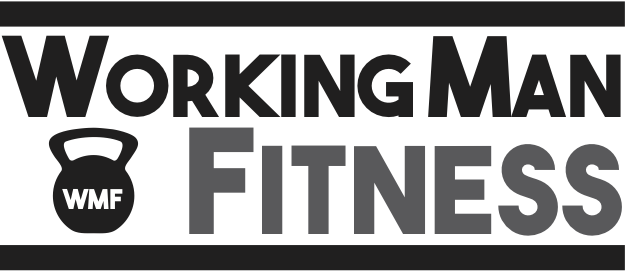I’m a no excuses kind of person. I’m quick to blame myself and if I catch myself trying to blame something else, I am usually quick to realize I’m full of shit.
If you really want to stay healthy and strong, even if you’re a parent working a full time job, there are ways to do it. Time is no excuse, genetics is no excuse, lack of equipment is no excuse.
Here’s the approach I take to training when time is crunched.
Make Whitespace
Juliet Funt, a corporate trainer/consultant says that we need to make whitespace so we are not busy all the time. Being busy all the time kills our productivity.
How do you make whitespace? By redistributing effort and excellence. Can I get someone else to do it? Can I do the job less well?
Americans like to pride themselves on how busy they are, so it seems. Well, pride is one of the 7 deadly sins so enjoy your fall, I say. No, we don’t need to be busy all the time—and it’s foolish if we are.
So, when life gets crammed up with stuff, and you think you have no time, use Funt’s advice to look for ways to redistribute effort and excellence. For me that means my food doesn’t need to be perfectly chopped and it also means that I’m not going to set difficult strength goals to achieve. There will be some toys on the floor when I go to bed. I’m going to be practical and understand the limitations of the situation and be content with redistributing some excellence.
Eat Well
We never resorted to cheap processed foods when the little one was born. Cooking became a little tedious at times, but we planned our meals and stuck to our plan. We also simplified. We ate virtually the same meals week in and out. Small changes—chicken instead of beef or tempeh instead of meat, quinoa instead of rice, broccoli instead of carrots—but basically the same meals.
This simplified cooking and shopping and saved time. It also meant we were eating well. Where some people destroy their health by eating garbage as soon as life gets busy, we dug in and created a program to eat right.
About Sleep
Gotta get 7 or 8 hours of sleep per night, all the experts say. I agree—I like sleep. But I also think we’ve gotten so optimal this and optimal that that we’re getting weak. So you didn’t get 7 hours. Does that mean you can’t be productive? Does it mean you get an excuse to be a grouch? No, it doesn’t.
In our fatigue, we might come up with a creative, albeit lazy, way to get something done that might not occurred to us if we were fully rested.
Also, I’ve noticed that sleep is far more enticing if I’m not particularly excited about my projects at the moment. What I’m saying is that it’s partly mental: if you think you’re going to be tired because you didn’t sleep well, then you’re creating your own level of fatigue unnecessarily.
About Training
Something is better than nothing. If you’re recovery is compromised because of sleep, then do less. Learn to read the signs your body is giving you.
I’m not a fan of setting training goals, other than I am going to train for life and be able to full squat when I’m 90, dammit all. I’m not going to stop. That goal, rather than a shortsighted press such and such by this date, keeps me thinking long term and prevents me from pushing when I shouldn’t.
Training should lead to body and health awareness. The type of awareness that speaks up and tells you to stop eating donuts and drinking soda because you feel like crap afterwards. The type of awareness that tells you that lifting heavier and heavier weights is making your joints hurt.
This is why I advocate so strongly the movement-based approach to exercise. The point is the movement and doing it well. The other things are externals which aren’t that important. Paying attention to detail and staying present in the moment in an exercise is a skill that can transfer over to fatherhood and being a good husband. Unconsciously getting as strong as you can consequences be damned can make your life unnecessarily difficult. Not training at all prompts weakness and dis-ease and makes life difficult and less enjoyable. The movement-based training approach is sane and logical and transcends the need for change.
Kettlebells
Fast, efficient, and fun. One little kettlebell is all you need. They teach you how to move and hinge from your hips (a skill a lot of sedentary folks have lost) and they give you a fast workout. That’s why I’ve given kettlebells their own page on this website.
* * *
Having a little one has changed life completely. If anything, it has made it more important to dedicate time to staying healthy and fit. This is a summary view of what has helped me be successful over the course of this first 8 months and my approach probably won’t change much as Nora gets older. Will this approach help you? Undoubtedly.
